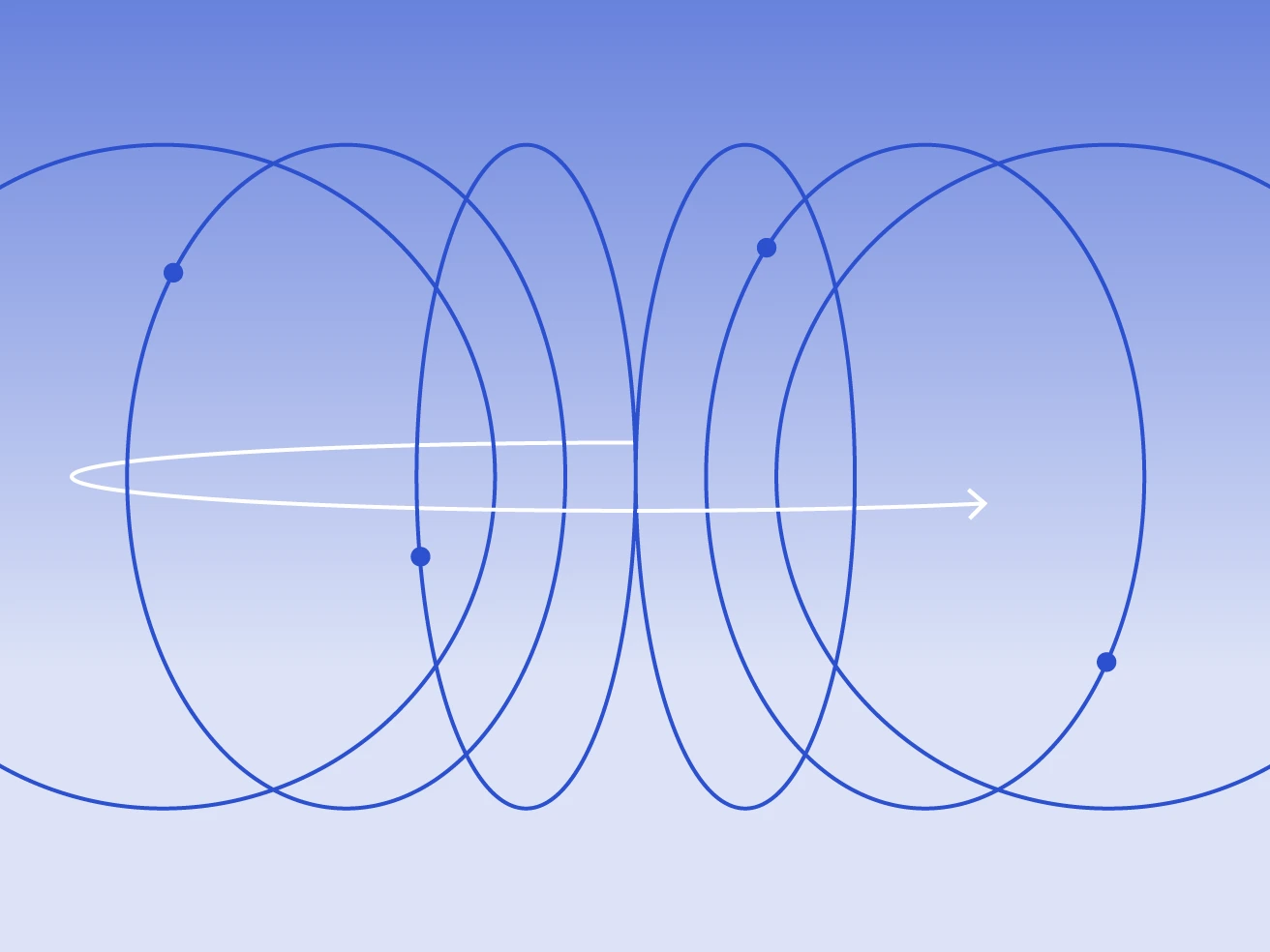
What is a procurement contract? Types & advantages
Discover procurement contract components and best practices.

Understanding the intricacies of the procurement processes is essential for medium to enterprise-level businesses aiming to upscale their vendor relationships or introduce long-term contracts. A procurement contract sits at the heart of these relationships, serving as a crucial tool for delineating the expectations and obligations of both parties involved.
In this article, we’ll take a look at the essentials of procurement contracts, guiding you through their definition, benefits, and how they can be leveraged and automated through Zip to bolster your company's overall performance.
What is a procurement contract?
A procurement contract is a legally binding agreement between a buyer and a supplier, defining the terms and conditions related to the purchase of goods or services. It sets the foundation for vendor selection, product selection, payment terms, and the negotiation process, ensuring that both the company’s and the supplier's needs are met.
An effective procurement contract balances the interests of both parties, providing clear guidelines on product management, including ordering, payment, and delivery.
What are the key components of a procurement contract?
Procurement contracts are more than just formal agreements; they are meticulously crafted documents that protect the interests of both parties, ensure clarity in expectations, and facilitate smooth operations. Including comprehensive and clear terms in a procurement contract is crucial.
It not only minimizes the risk of misunderstandings and disputes but also establishes a framework for the relationship, setting the stage for successful collaboration.
Here are the key components that should be included in every procurement contract.
- Statement of Work
The Statement of Work (SOW) is the foundation of any procurement contract. It specifies in detail the goods or services to be provided by the supplier. A well-defined SOW includes project objectives, scope, deliverables, timelines, and performance criteria, ensuring that both parties have a clear understanding of what is expected. This clarity helps prevent scope creep and keeps the project aligned with its original goals.
- Payment terms and conditions
This section outlines how and when the supplier will be compensated. It includes the total contract price, payment schedule, invoicing procedures, and any penalties for late delivery or subpar performance. Clear payment terms ensure that the supplier knows when to expect payment, while the buyer can plan their budget and cash flow accordingly.
- Contract negotiation
Contract negotiation is the process of reaching an agreement on the terms of the contract. This phase is critical for clarifying expectations, discussing the specifics of the SOW, and ensuring that the terms are fair and beneficial for both parties. Effective negotiation helps in building a positive relationship between the buyer and the supplier, laying the groundwork for successful long-term collaboration.
- Contract lifecycle management
Contract lifecycle management (CLM) refers to the administration of contracts from initiation through execution, performance monitoring, and eventual renewal or termination. CLM is vital for ensuring that both parties adhere to their commitments and for managing changes or issues that arise during the contract's life. Efficient CLM processes can lead to stronger partnerships, improved compliance, and enhanced operational efficiency.
- Supplier performance management
Monitoring and managing the performance of suppliers is crucial for maintaining the quality of goods and services received. This component involves setting performance benchmarks, conducting regular evaluations, and providing feedback. Supplier performance management helps in identifying areas for improvement, ensuring contract compliance, and fostering continuous improvement in the quality of goods and services provided.
- Supplier risk management
Supplier risk management involves identifying, assessing, and mitigating risks associated with relying on external suppliers. This can include financial stability, geopolitical factors, or supply chain disruptions. By proactively managing these risks, companies can minimize potential impacts on their operations and ensure a stable and reliable supply chain.
What type of procurement contract suits your business?
Choosing the right type of procurement contract is crucial for maximizing value and ensuring the success of your business's supplier relationships.
The nature of the contract can significantly affect both the negotiation process and the outcome of the deal, making it essential to select a contract type that aligns with your business needs and the services provided by your suppliers.
Let's explore the three primary types of procurement contracts—fixed price, cost-reimbursement, and time and materials—to help you determine which is best suited for your business.
Fixed price contract
Fixed price contracts are ideal for projects with well-defined scopes where the costs can be accurately estimated upfront.
This type of contract offers price certainty, as the supplier agrees to deliver specific goods or services at a set price. It is advantageous for budgeting and financial planning, transferring the risk of cost overruns to the supplier. Fixed price contracts encourage efficiency and cost control, making them suitable for projects with clear specifications and predictable outcomes.
Cost-reimbursement contracts
Cost-reimbursement contracts are beneficial when project scopes are not clearly defined, or when the costs cannot be accurately predicted at the outset. Under this arrangement, the buyer agrees to cover the actual costs incurred by the supplier, plus a fee or profit.
This type of contract offers flexibility to adapt to changing project requirements but requires rigorous oversight and auditing to manage costs and prevent budget overruns. Cost-reimbursement contracts are best suited for complex projects where flexibility is paramount.
Time and materials contract
Time and materials contracts are a good choice for projects where it is challenging to estimate the extent of work required. Payment is based on the actual time spent by the supplier on the project and the materials used.
This contract type provides flexibility and is ideal for projects with variable scopes or where changes are expected. However, it requires close monitoring and management to keep track of costs and ensure project objectives are met.
What are the advantages of having a procurement contract?
An effectively crafted procurement contract goes beyond mere transactional agreements, embedding itself into the fabric of a company's operational efficiency and financial health.
Here’s why procurement contracts can be a boon to your business, not only in maximizing profits, but also in fostering a transparent, accountable, and streamlined procurement process.
Maximizing profits
One of the primary advantages of having a procurement contract is its ability to maximize profits. By clearly defining the terms of purchase, including pricing, delivery schedules, and quality standards, companies can avoid the costs associated with misunderstandings or poor-quality goods and services. Furthermore, procurement contracts can leverage volume discounts and negotiate favorable terms, directly impacting the company's cost savings and profit margins.
Improving transparency
Transparency is crucial in any business relationship, and procurement contracts serve as a critical tool in ensuring that both parties are clear about expectations, responsibilities, and outcomes. These contracts lay out the specifics of the agreement, including what is being purchased, at what price, and under what conditions. This level of detail ensures that both the supplier and the buyer have a shared understanding of the agreement, reducing the likelihood of confusion and conflict.
Leaving no room for disputes
A well-drafted procurement contract leaves no room for disputes by ensuring full disclosure of all terms and conditions. It acts as a legal document that can be referred to in case of disagreements, providing a clear framework for resolution. By covering all bases and anticipating potential issues, procurement contracts minimize the risk of disputes, saving time and resources that could otherwise be spent on litigation.
Holding both supplier and buyer accountable and liable
Procurement contracts clearly define the obligations and liabilities of both parties, ensuring accountability. This includes detailed specifications of the goods or services, delivery timelines, and performance expectations. By having these elements in writing, both the supplier and the buyer are legally bound to fulfill their end of the bargain, with specific recourse available if either party defaults. This mutual accountability fosters a reliable and professional business relationship.
Establishing a standardized process for making requests
Procurement contracts contribute to operational efficiency by establishing a standardized process for making requests. This standardization helps in streamlining the procurement process, making it faster and more efficient. It also ensures consistency in how requests are handled, evaluated, and approved, reducing the likelihood of errors or oversights.
Setting Up an Approval Process and Guidelines to Evaluate Price, Terms, and Risk at Scale
Finally, procurement contracts allow businesses to set up a formal approval process and guidelines for evaluating price, terms, and risk at scale. This is particularly important for businesses that deal with a large volume of procurement activities.
Having a standardized process in place ensures that each contract is evaluated thoroughly and consistently, mitigating risks and ensuring that the company's procurement activities are aligned with its strategic goals.
What are the factors behind a successful procurement contract?
A successful procurement contract is the linchpin of efficient business operations and sustainable supplier relationships. It goes beyond the mere act of signing agreements to encompass a series of deliberate, strategic actions designed to ensure mutual benefit and performance optimization.
Planning a contract's workflow meticulously is essential, incorporating a holistic view of the sourcing processes, negotiations, and post-award management. Let's explore the critical factors that contribute to the success of a procurement contract.
Consider all of sourcing processes in place
Successful procurement contracts are built on the foundation of a comprehensive understanding of existing sourcing processes. This includes everything from market analysis and supplier evaluation to the final selection. A thorough grasp of these processes ensures that contracts are aligned with business needs and market realities.
Conduct extensive negotiations
Negotiations are not merely about haggling over prices but about finding mutually beneficial terms. Extensive negotiations cover scope, timelines, quality standards, and more, ensuring that both parties' needs and expectations are met. This step is crucial for creating a contract that is fair and sustainable.
Lay out requirements in full detail
Clarity is key in procurement contracts. Laying out the requirements in full detail eliminates ambiguity, sets clear expectations, and forms the basis for measuring supplier performance. Detailed requirements also facilitate easier adjustments and conflict resolution during the contract’s lifecycle.
Define KPIs to monitor performance
Defining Key Performance Indicators (KPIs) is essential for monitoring and evaluating supplier performance against contract terms. KPIs should be specific, measurable, achievable, relevant, and time-bound (SMART), enabling both parties to assess the success of the engagement and make necessary adjustments.
Stakeholders Must Be Fully Aware of All Terms and Conditions
Awareness and understanding of the contract terms and conditions by all stakeholders are vital. This ensures that everyone involved has a clear picture of their responsibilities, the expectations, and the criteria for success, fostering a collaborative and transparent relationship.
Establish strategies for ongoing contract management once the bid is completed
A procurement contract’s lifecycle doesn’t end with the award. Establishing strategies for ongoing contract management is critical for adapting to changes, resolving issues, and ensuring continuous improvement. This includes regular reviews, performance monitoring, and renegotiations as necessary to reflect changing needs or conditions.
By addressing these key areas, businesses can ensure that their procurement contracts are not just agreements but strategic tools that drive value, performance, and partnership success.
Use Zip to automate your procurement contracts workflow
In the intricate process of procurement contract management, staying organized and efficient is paramount. This is where Zip's innovative Approval and Intake functionalities supercharge your workflows, offering a streamlined solution for automating and managing your procurement contracts workflow with unmatched ease and precision.
- Automated approval workflows: By automating the approval chain, Zip ensures that contracts move smoothly from one stakeholder to the next, with automatic notifications and updates keeping everyone in the loop.
- Intake management: At the heart of Zip's platform is our robust Intake functionality, which acts as a centralized ‘single front door’ for all procurement requests. This allows teams to submit procurement requests which are automatically routed to the appropriate workflow for approval and processing. By centralizing requests, Zip creates a single source of truth for all procurement activities, ensuring that nothing falls through the cracks and that every request is handled efficiently and effectively.
- Central repository of procurement contracts: Zip serves as a central repository for all your procurement contracts. This repository provides a secure and accessible location for storing contracts, making it easy to search for and retrieve documents whenever needed.
Having a centralized database significantly enhances visibility across the organization, allowing teams to review contracts, monitor compliance, and analyze supplier performance with ease.
Transform your procurement workflow with Zip
By leveraging Zip's Approval and Intake functionalities, businesses can dramatically improve their procurement contract management process. From speeding up approvals to ensuring comprehensive oversight of all contracts, Zip empowers teams to work more effectively, reduce risks, and maintain strong supplier relationships.
Embrace the future of procurement with Zip and discover how automation can transform your contract management process.
We invite you to request a demo today and see firsthand the difference Zip can make in streamlining your procurement processes, enhancing transparency, and driving efficiency from intake to pay.

Maximize the ROI of your business spend

Enter your business email to keep reading


























.webp)



















.avif)













.avif)









.webp)





.avif)












.avif)
